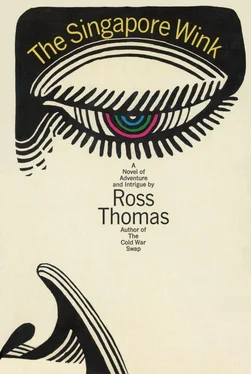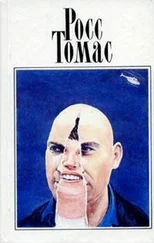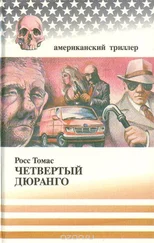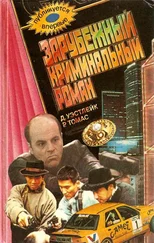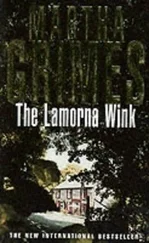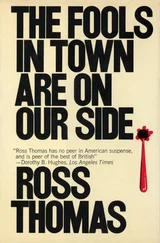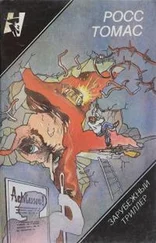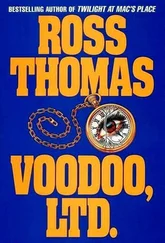“And that’s how I got in,” I said.
“Cole panicked and there wasn’t anybody else he could think of.”
“Or trust.”
“That’s right. Or trust.”
“And Callese was just a messenger boy,” I said.
“A high-priced one, but that’s all,” Dangerfield said. “I had it all worked out, but Cole screwed it up. I was going to squeeze a million out of Lozupone and then put him away. If he was out of the way in Atlanta, then the rest of them would ease up on Cole and he’d keep on paying.”
“What happened to Carla?” I said. “Why kill her?”
“I didn’t kill her,” Dangerfield said. “I never killed anybody.”
“Your friend at the door then.”
“Like the cops say,” Nash said. “Angelo Sacchetti killed her.”
“All right,” I said. “That was clever, but why kill her?”
“Carla turned bad when she found out that me and Jack were running the thing and that Sacchetti was dead. She threatened to tell her old man; blow the whole thing. She also had a soft spot for you, Cauthorne.”
“Carla was okay,” I said and somehow it seemed that I could have said more than that.
“So we set up another meeting with her; she brought the letter along; we took it, and then turned her over to the gentleman standing behind you. We just made sure that Angelo’s billfold was in her hand.”
“It looked like a frame,” I said.
“We wanted it to. It’ll keep them guessing for years. Angelo Sacchetti disappeared that same night. Jack’s kid cut his hair, shaved off his mustache, flew to Panama under his real name, and that’s it.”
“Extraordinary,” Trippet said.
“He used to be with British Intelligence,” Nash said to Dangerfield.
“Are you still, Mr. Trippet?”
“No, I’m in the used-car business.”
“Just like Cauthorne, huh?”
“There’re a couple of more loose ends,” I said.
“Afraid they’ll have to wait,” Dangerfield said. “We’re due to move out. Take the gentlemen’s coats,” he added, nodding to the Chinese. “They look all hot and sweaty.”
“I’ll keep mine,” I said.
Dangerfield shook his head. “I’m disappointed in you, kid. That suit’s got a nice cut, but that gun in your belt spoils the hang. If you’ll look under the desk, you’ll find that something’s pointing at you and has been since you walked in.”
The Chinese came over and I let him take my coat. He also took the Chief’s Special. My stomach, at least, was happy to get rid of it.
“Now what?” I said.
“Now? Well, we take a trip and rendezvous with the yacht. Toh and his daughter should be aboard by now and I’m sorry you won’t get to see them.”
“You mean you’re going to make us walk back?”
“That’s the way it cuts out. Toh gets the yacht and a few more bucks and we shut down operations in Singapore. It’s been one sweet deal, I can tell you. But if you know when to close the store, well, hell, you know what I mean.”
“You can always work the big con, Sam,” I said. “You worked it on me; you had the store and everything.”
“You’re a mark, Cauthorne,” Dangerfield said. “You’ll always be a mark, but always won’t be a hell of a lot longer for you.”
“I don’t know,” I said. “I was getting to—” I never finished it. The same stunt had worked in three pictures and I thought I knew exactly what to do. So I yelled, “Trippet!” and kicked the deal table over into Dangerfield’s lap. He had a gun underneath it after all and it went off, but the bullet went into the floor and by then I was sailing across the table and both feet slammed into Dangerfield’s chest. He yelled and fired the gun again, but it didn’t seem to hit anyone. I kicked his hand and he dropped the gun and I scooped it up, noticed that it was a.38 caliber automatic and thought that an FBI agent should know better. Trippet seemed to be tangling nicely with Nash and the Chinese by the door was trying to get a clear shot at me so I shot him instead. He grabbed his stomach and amazement spread slowly over his face, the first real emotion that I had ever seen him display. He still wanted to pull the trigger of the Chief’s Special so I tried to shoot him again, but the automatic jammed. I threw it at him and missed as he folded slowly. His knees bent first, then his head dropped as if he were trying to take a close look at his stomach. Finally, he curled up on the floor and started to groan.
From behind Dangerfield brought the gin bottle down on my left shoulder. He ran out the cabin door and I got up after a while and started to follow. I tried to pick up the Chief’s Special that the Chinese had dropped, but Nash broke away from Trippet and kicked it under the bunk. Both of them dived for it and I went after Dangerfield.
He was moving towards the stern of the kumpit and shouting something. He stopped near what appeared to be a bale of copra, snatched up a wicked looking machete, and turned, his face red and dripping with sweat. “Don’t come any closer, kid, or I’ll cut your gizzard out.”
I looked around for something to hit him with. I would have settled for a bottle or even a small rock. There was a short, thick stick with a hook in one end lying on the deck next to the copra bale. I bent down slowly, my eyes on Dangerfield, and picked it up, talking all the time. “You’re too old for that, Sam,” I said. “Too old and fat.” The stick and its hook were about two feet long and looked something like the kind that longshoremen use.
Dangerfield moved towards me, shuffling, the machete raised high in his right hand. I didn’t bother to tell him that it wasn’t a particularly good position. I feinted with the stick and he tried to slash it and I poked him in the stomach. He said “oof,” or something like it, and moved back; he was quicker than I thought.
Dangerfield waved the machete around some more as he shuffled flatfooted backward towards the stern. A yellow light that hung just above him rippled highlights off his white dome as the bulb glowed by fits and starts on the erratic current that came from the kumpit ’s generator.
Dangerfield changed his mind, stopped backing, and came in fast, the machete slashing and hacking in front of him. As in fencing, I lost any sense of space and time. All that existed was a kinetic image of the machete. The stick with the hook went to meet the machete when needed, but it was guided by intuition, not thought. Dangerfield’s moves fed information into my brain and my right hand responded automatically. I thought about something else. I thought about how much I hated Dangerfield and found, to my surprise, that the intensity of the hate was most comforting.
It was no formal fencing match on a six-foot-wide, forty-foot-long white strip. It was not even good theatrical sword-play with lots of leaping about from balcony to stairs and swinging around on the drapes. It was only a man with machete in his hand who wanted to kill me and I let my reflexes take over completely. The only conscious thoughts I had were about how much I hated him. I liked those thoughts; they helped.
Dangerfield began to tire, but not much, and I forced him back, shuffle by shuffle. His machete still made no pattern; there was no corps-à-corps with our wrists locked and straining and our faces an inch apart while we sneered our dialogue at each other. He hacked and I parried. He had no riposte, just one wild swing after another and each one threatened to take off my head.
As he reached the stern his right hand dropped an inch and it was the inch I needed when he made another vicious hacking lunge. I drove the round edge of the hook deep into his stomach. His arms flew out and he waved them around as he tried to keep his balance, but the back of his knees caught the low rail and for a long moment he teetered there, his arms swinging wildly, his right hand still clutching the machete. I poked him in the stomach again, not too hard, just enough, and his arms flailed at the air some more, but it didn’t help and then he knew he would fall. His eyes fastened on mine and he said, “Goddamn it, kid,” and just before he fell I thought his left eye closed and his mouth went up at the corner and together they formed a knowing, grotesque, and perfectly obscene wink.
Читать дальше
